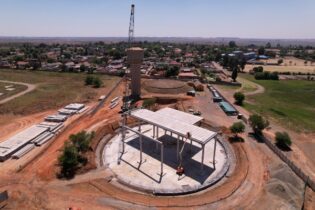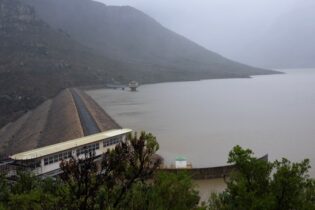The state-owned Land Bank has successfully concluded a debt restructuring agreement with its lenders, set to take effect on September 16, effectively ending its debt default status. This development marks a significant step toward stabilising South Africa’s primary agricultural finance institution and restoring its role in the sector.
The South African government has provided R10 billion to stabilize the bank and reduce its contingent liabilities, primarily through settling state-guaranteed loans. Additionally, R3.7 billion from these funds will be allocated to the Blended Finance Scheme, supporting the bank’s agricultural development and transformation mandate. Finance Minister Enoch Godongwana emphasised that the government prioritized self-help measures for the bank while keeping fiscal support minimal, but noted that its funding model remains a priority going forward. The new operating model, led by CEO Themba Rikhotso and his executive team, with strong support from the board, will drive the Land Bank’s recovery. Currently, more than 50% of the bank’s loan book, amounting to about R8 billion out of a total R17 billion, is classified as non-performing. This situation significantly contributed to the bank’s debt default. “As part of our liability solution, we have developed extensive plans with lenders to address our non-performing loans, with various programs in place to restructure these loans,” Rikhotso explained. The Land Bank will closely monitor its loan portfolio and support clients who demonstrate potential for productive agricultural activities to cure the recoverable non-performing loans. The Land Bank has already taken decisive steps to manage its debt by liquidating its “good” loan book, using the proceeds to repay over 60% of its outstanding debt. Despite this, the bank’s loan portfolio is showing signs of growth, with R1.5 billion in new funding (half in grants and half in loans) recently approved. Moving forward, the Land Bank will make scheduled repayments to lenders every six months through March 2028, with the government’s equity contribution playing a critical role in positioning the bank for sustainable growth. Since its debt default in April 2020, the Land Bank has reduced its loan book from R45.2 billion to R17 billion by June 2024, allowing it to repay over 60% of its debt. Despite downsizing, the bank resumed limited lending in October 2022 through the Blended Finance Scheme, supported by grant funding from the Department of Agriculture.With the debt restructuring plan finalized, the Land Bank is now focused on executing its turnaround strategy to fulfill its mandate and drive development and transformation within the agricultural sector. The turnaround strategy, launched in the 2023 financial year, is structured into three key phases:
- Stabilisation Phase (up to 2024): Focus on balancing debt repayment obligations and re-establishing limited lending.
- Consolidation Phase (2025-2027): Concentrate on improving operations and strategic execution.
- Growth Phase (2028 onwards): Aim for a diversified funding model and business growth, with expanded development outcomes.








